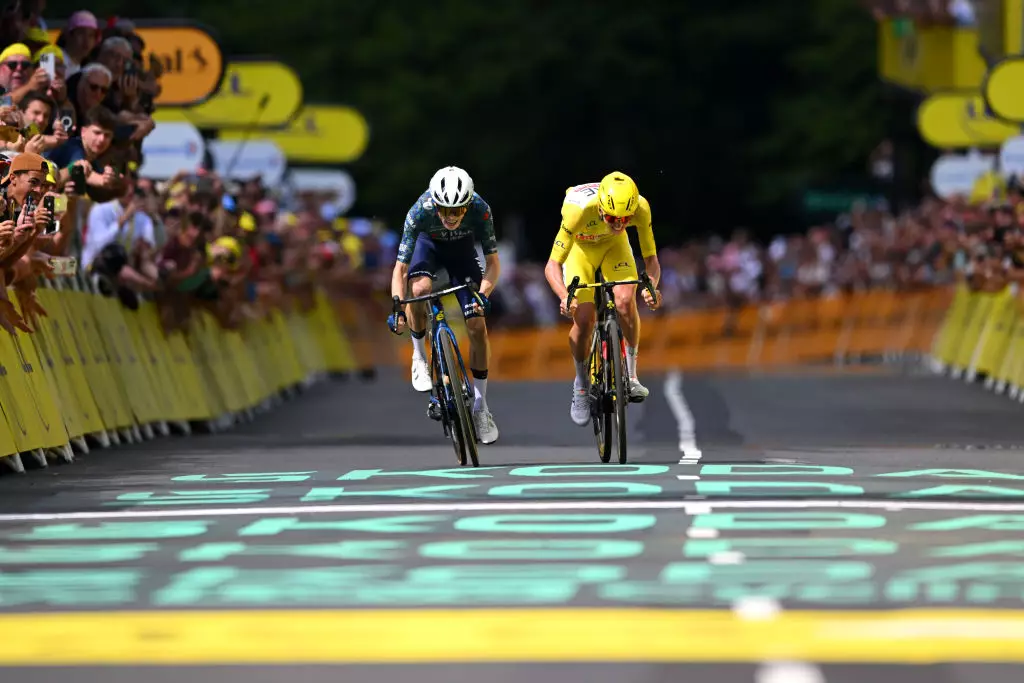The recent acquisition of exclusive UK broadcasting rights for the Tour de France by Warner Bros. Discovery (WBD) has sparked significant discussions within the sporting community and has raised questions about the future of cycling coverage in the country. With Eurosport under its umbrella, WBD has introduced a new paradigm for how cycling’s most prestigious event may be displayed and consumed, potentially altering the landscape for fans and the sport alike.
Warner Bros. Discovery’s singular position as the sole bidder for the Tour de France rights has led to speculation about the potential for free-to-air coverage in the future, despite no other broadcasters expressing interest in the deal. Traditionally, this coveted event has garnered attention not only from avid cycling fans but also casual viewers, thanks to its historical airing on channels such as ITV and Channel 4. However, with ITV’s current agreement expiring after the 2025 race, the landscape for accessibility to the event could shift dramatically, with fears surfacing about the implications for fans who may be required to invest in a pay-TV subscription for access.
The European Broadcasting Union, which facilitates rights negotiations on behalf of ASO, acted as the intermediary that propelled this recent deal. The ramifications of this acquisition are poised to resonate throughout the sport, especially as cycling’s popularity in the UK has soared in recent years, buoyed by impressive performances from British athletes in the Olympics and significant achievements in the Tour de France itself.
The surge in cycling’s visibility can largely be attributed to the recent medal successes in Olympic events and the triumphs of three British winners of the Tour de France: Bradley Wiggins, Chris Froome, and Geraint Thomas. The fact that the British cycling team, Ineos, is one of the most financially robust teams lends credibility to the sport’s growth. High-profile riders, such as Tom Pidcock, have become household names, further integrating cycling into the UK mainstream sports culture.
However, a concerning trend has emerged with the announcement of WBD’s exclusivity; fans are voicing concerns over the potential loss of free access to the race. Many individuals have fond memories of watching the Tour de France on free channels, and the thought of reverting to a paywall has left a sour taste in the mouths of long-time followers of the event.
Although WBD has chosen not to comment specifically on their plans moving forward, there is speculation that they may introduce a complimentary free-to-air highlights package, possibly through their Quest channel. This could allow the network to maintain a semblance of public accessibility while still leveraging its existing subscription model for in-depth coverage.
Historically, platforms like Eurosport have been synonymous with cycling, offering year-round content that covers extensive cycling events and beyond, including motorsports and winter sports. The pay-TV model does provide a comprehensive viewing experience, yet it remains vital to consider the accessibility challenges posed by this shift.
The delineation between casual viewers and dedicated cycling fans is pivotal in understanding the broader implications of this change. While die-hard fans may be willing to invest in subscriptions for the full experience, casual viewers who tune in sporadically could feel disconnected from the sport if significant events require financial commitment to view.
The Role of ITV and Future Broadcasting Strategies
As ITV has stepped back from pursuing cycling rights, it raises a critical question about their strategic priorities. Their focus seems to have pivoted toward securing rights for popular sports like soccer, potentially at the expense of cycling’s prominence on public platforms.
The reality is that the new broadcasting arrangements will be in place starting from 2026, which means the upcoming Tour de France in 2025 will be the last time the event is showcased on ITV airwaves. As stakeholders assess this transition, both WBD and potential competitors must navigate the delicate balance of engaging audiences while fostering cycling’s growth in the UK.
The shift in broadcasting rights for the Tour de France reflects broader changes in media consumption and raises essential questions about accessibility and engagement in sports. The challenge now lies in how WBD will evolve its offerings to cater to a diverse audience while strengthening the sport’s presence in a changing landscape. As fans await further developments, the implications of this new era of cycling broadcasting will undoubtedly be watched with keen interest.

